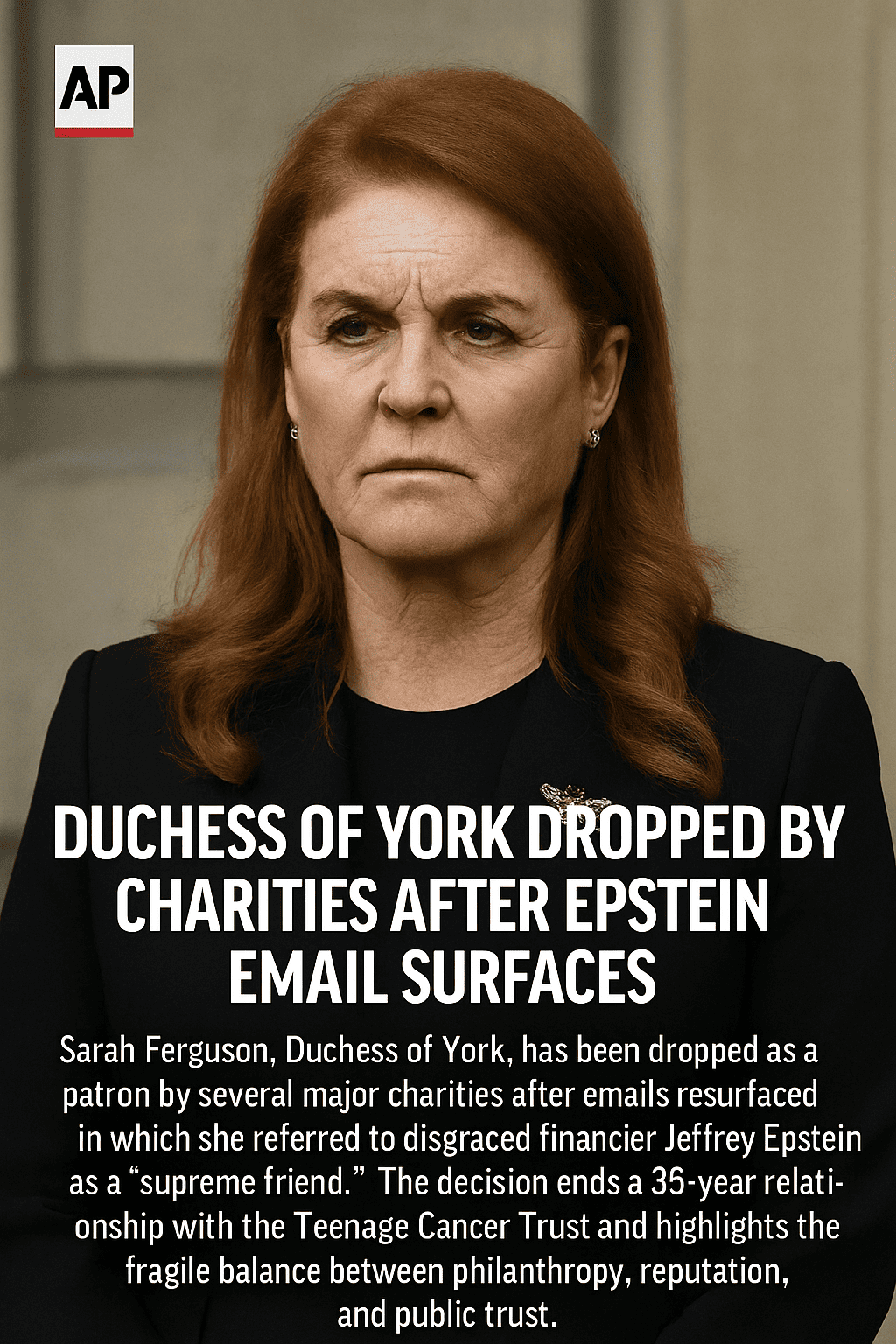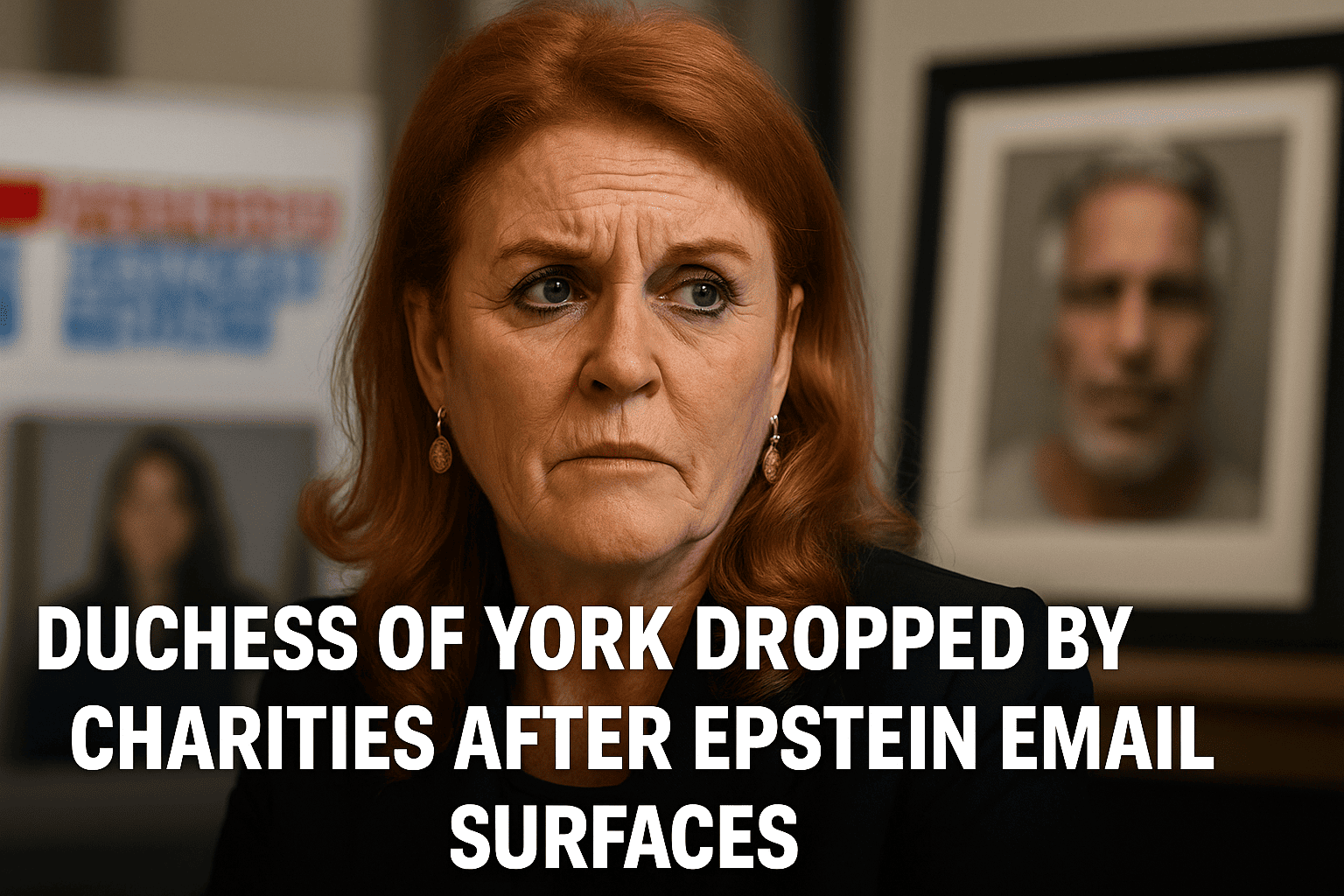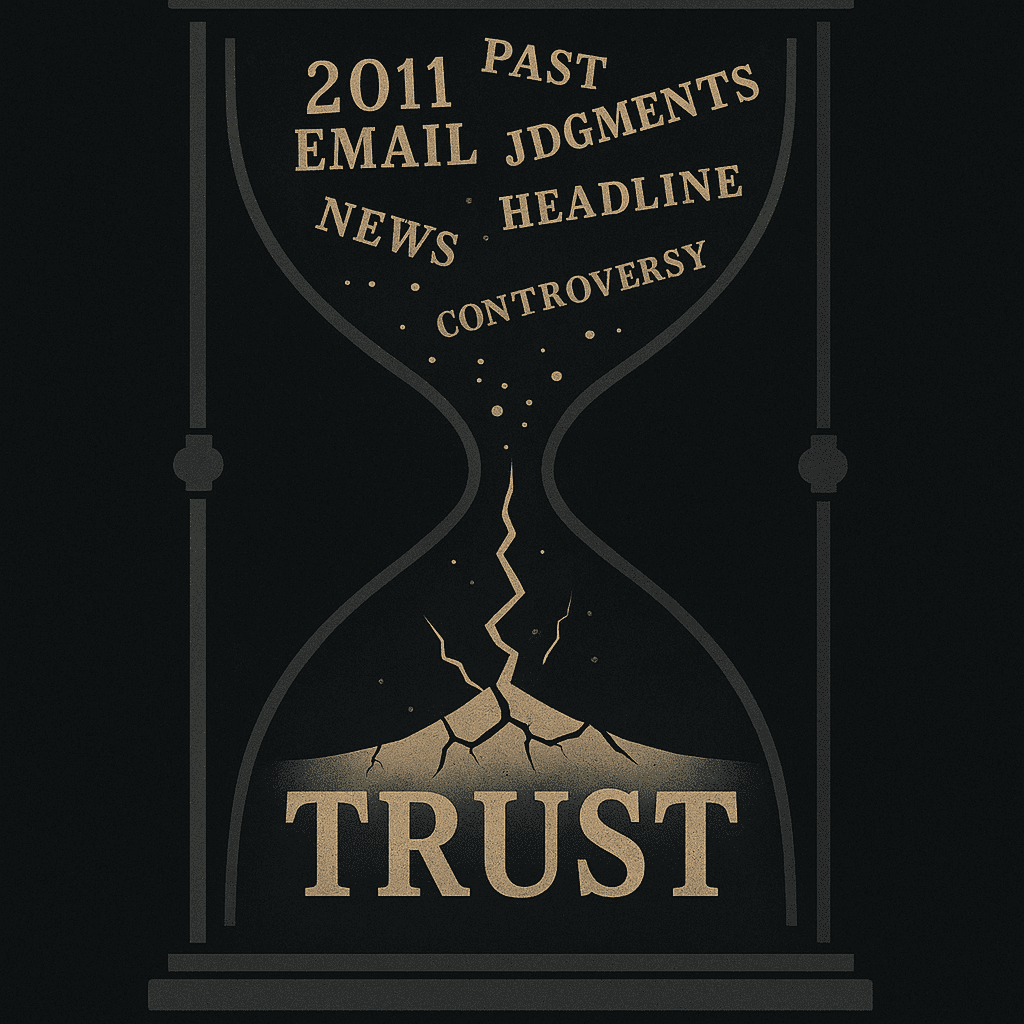
The Fallout
The Teenage Cancer Trust announced on September 22 that Ferguson would no longer serve as its patron. Within hours, other organizations — including Julia’s House children’s hospice, Prevent Breast Cancer, The Natasha Allergy Research Foundation, and the British Heart Foundation — issued similar statements, distancing themselves from the Duchess.
Each group cited the same reason: correspondence from 2011 in which Ferguson apologized to Epstein after previously denouncing him in the media. In one email, she wrote: “You have always been a steadfast, generous and supreme friend to me and my family.”
The Context
Back in March 2011, Ferguson admitted she had accepted £15,000 from Epstein and called it “a gigantic error of judgment.” Shortly after, however, she sent him a private apology. Her representatives now claim that Epstein had threatened legal action and that she was “advised” to write to him under pressure.
Epstein, convicted of sex offenses and later charged with sex trafficking, died by suicide in a Manhattan jail in 2019. Any association with him remains toxic in public life, especially in Britain, where Prince Andrew’s own ties to Epstein continue to shadow the royal family.
The Repercussions
The rapid cascade of withdrawals highlights how unforgiving the modern charity sector has become when reputational risk is at stake. Charities depend on public trust, donor goodwill, and government partnerships. Any hint of association with Epstein threatens to undermine not only their credibility but also their ability to fundraise. Ferguson’s long-standing involvement with causes such as cancer research and child welfare once gave these charities valuable visibility; now the same name has become a liability.
For the Duchess herself, the reputational damage is more severe than symbolic. Stripped of high-profile patronages, she loses both a public platform and a layer of legitimacy within British civil society. For a figure already navigating decades of tabloid scrutiny and financial controversy, the fallout cements her position on the margins of royal influence.
The Broader Picture
The case also underscores how Epstein’s shadow continues to haunt the British establishment. Even five years after his death, associations with him remain politically and socially radioactive. Prince Andrew’s settlement in his civil case with Virginia Giuffre has already scarred the monarchy’s global image. Now, the Duchess of York’s resurfaced correspondence revives uncomfortable questions about how deeply Epstein’s connections ran among the wealthy and well-connected.
What Comes Next
Ferguson’s camp may argue that her apology was coerced and that she acted under duress. But in the court of public opinion, nuance often collapses under the weight of perception. For the charities, distancing themselves was the simplest and safest course of action. For Ferguson, the path forward is murkier. Rehabilitation of her image would require transparency, accountability, and perhaps a public acknowledgment that past decisions cannot be excused as mere “errors of judgment.”

Why It Matters for Charities
For the charities involved, the decision was not only about distancing themselves from controversy but about safeguarding their credibility with the public. In today’s environment, reputation is currency. A single questionable association can undermine years of trust-building.
- Donors expect accountability. Charities cannot risk being linked to figures associated with criminality, even indirectly.
- Public perception is immediate. With media and social platforms amplifying every revelation, organizations react quickly to protect their legitimacy.
- Royal status no longer shields. Where once aristocratic patronage lent prestige, it now invites scrutiny — especially when connected to scandal.
A Mirror of Social Change
This episode is more than a scandal about one individual. It reflects how digital transparency reshapes accountability. Emails written more than a decade ago now carry consequences in 2025. For public figures, history is searchable, shareable, and permanent.
Sociologically, the story reveals three trends:
- The fragility of trust: Reputation takes decades to build and seconds to lose.
- The new role of charities: No longer just fundraisers, they are guardians of ethical standing in the eyes of their supporters.
- Decline of aristocratic immunity: Titles and tradition no longer shield public figures from scrutiny; moral credibility has replaced inherited prestige.
Conclusion
Sarah Ferguson’s fall from patronage is not just a personal setback; it is a parable for the age of digital permanence. Charity work is no longer measured only in years of service or millions raised, but in the consistency of moral credibility. Integrity has become the true currency, and organizations can no longer afford even the shadow of compromise.
What this episode makes clear is that reputation is now both more valuable and more fragile than ever. The internet never forgets, and the public never stops judging. For charities, swift action is survival. For public figures, the lesson is stark: goodwill cannot be banked indefinitely, and past misjudgments will resurface no matter how deeply they are buried.
In the end, the Duchess’s story is less about one email and more about the shifting landscape of power. Aristocratic prestige has ceded ground to public accountability; titles no longer confer protection, and transparency has replaced deference. The message is unmistakable: in 2025, trust is not inherited — it is earned, safeguarded, and endlessly scrutinized.

